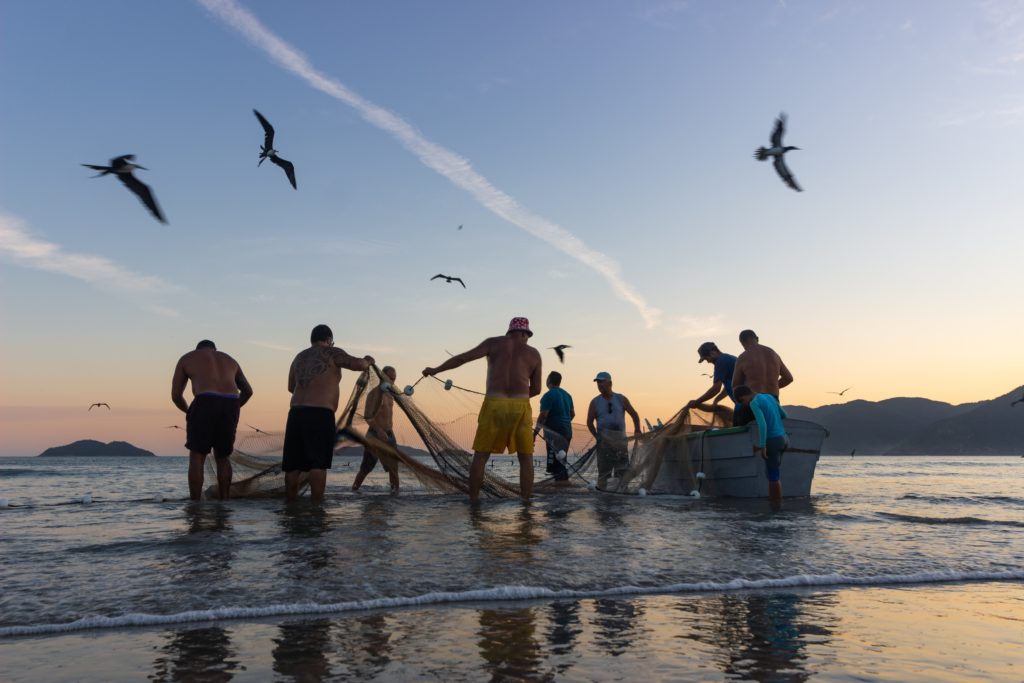Seafood traceability is an important tool for tracking the journey of fish from bait to plate. Key data elements (KDEs) are collected at different points to track a seafood product through all stages of a supply chain. These data have helped address food safety and environmental issues. As awareness about human and labor rights abuses within the seafood sector has grown, so has interest in determining whether data currently being collected could be used to identify human and labor rights risks. Is there a small set of additional KDEs that could shed light on risks? The Seafood Alliance for Legality and Traceability (SALT), a public-private partnership between USAID and the Packard, Moore, and Walton Family Foundations and implemented by FishWise, convened human and labor rights organizations in July to explore this issue. They overwhelmingly determined the most important piece of labor specific data to be collected at scale to assess risk is whether or not workers are represented by an independent trade union or representative worker organization, and whether they have the legally protected right to join such organizations.
SALT’s initial work on this subject was undertaken by human rights experts, Judy Gearhart and Rainer Braun, and presented during the webinar, Using Seafood Supply Chain Data to Identify Human Rights Risks. Though no one set of KDEs is collected within the sector, they determined that information gathered through various efforts could help assess human and labor rights risks. Among the most relevant data currently being collected are time at sea, catch quantity, transshipment, flags flown, vessel owner record, and vessel monitoring system(VMS)/automatic identification system (AIS) interruption.
Judy and Rainer also explored whether there were social-specific KDEs that could be collected. The Global Dialogue on Seafood Traceability (GDST) included two social KDEs in their standard for collecting universal seafood data that aim to assess whether a company has a human welfare policy and, if so, the standards used in that policy. SALT built on this work by exploring what other KDEs would be worth collecting to assess whether human rights standards and policies were being implemented. Through their research, Judy and Rainer identified that wages, rest hours, having and understanding a contract, grievance support at port, harassment, and manning agency fees were among the most useful labor data elements to collect. They noted, however, that it is very easy to provide inaccurate information and difficult to verify this kind of data without asking workers directly. They also cautioned that asking workers to provide information could put the workers at risk. That approach is very difficult to carry out at scale to ensure the worker, rather than the captain or others in charge, is providing the information.

Given these challenges, SALT convened human and labor rights organizations to explore labor KDEs further. The consensus reached during the convening is that developing a small set of social KDEs to identify risk is extremely difficult because the data that surfaces labor rights risks is not necessarily the same for all regions of the world. There was also concern about how the data would be used. Identifying risk to help the government determine where to deploy limited labor inspectorate resources will only be useful in countries where labor inspectorates have the authority and mandate to inspect workplaces, including vessels. Collecting KDEs by companies to identify risk can be useful. However, it was noted that some initiatives use data to assess risk but do not take the next step of acting on that information to prevent, mitigate, and otherwise address the human rights risks that have been identified.
To have confidence that labor rights abuses are not occurring or that workers can speak up if they do occur, is to ensure the rights to freedom of association and collective bargaining. Freedom of association, or the right to form and join a trade union, is an enabling right that allows workers to come together to speak with one voice to better their lives. Workers are on the job day in and day out and are best placed to surface issues and identify solutions. Unions provide a structure for workers and employers to understand challenges and work together to resolve them. While freedom of association is a fundamental human right proclaimed in the Universal Declaration of Human Rights and the International Labor Organization (ILO) Fundamental Principles and Rights at Work, it is not universally respected. Some governments limit or prohibit workers from forming or joining unions, and some companies form unions that are not independent and do not represent workers’ interests.
Therefore, the experts suggested adding two labor-specific KDEs:
(1) Existence of an independent trade union or representative worker organization
(2) Name of the union or worker organization
SALT will share these KDE suggestions and the reasoning behind them during our discussions with companies, governments, and other stakeholders interested in collecting KDEs to help identify labor rights risks. If you are working in this space and want to add to the discussion, you can email us at salt@fishwise.org.
To hear more insight from Judy Gearhart and Rainer Braun on how traceability data could benefit seafood workers, listen to SALT’s podcast here:
